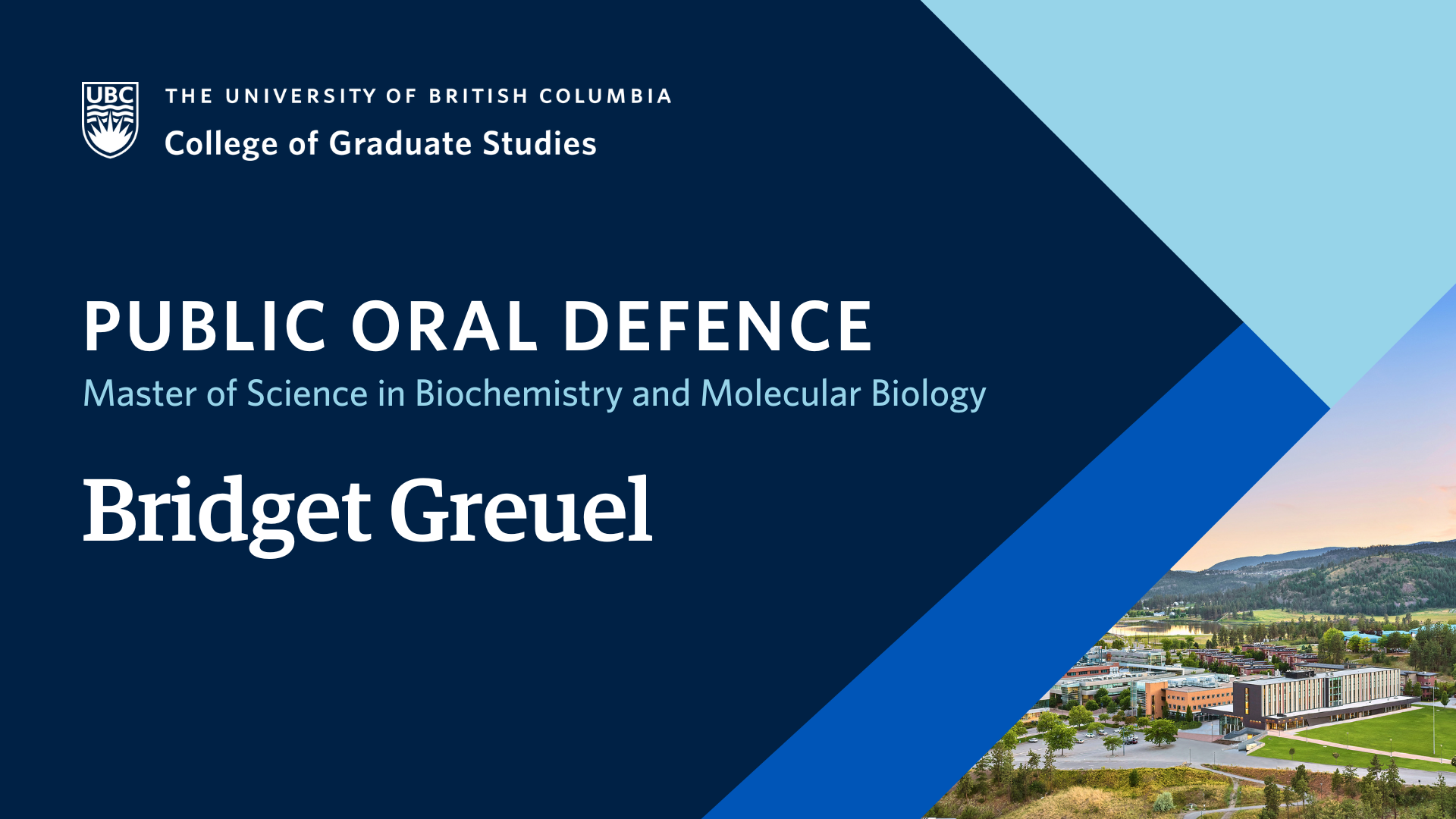
- This event has passed.
Thesis Defence: Selective Inhibition of Inflammasomes Modulates Microglial and Astrocytic Functions
March 21, 2023 at 9:30 am - 12:30 pm

Bridget Greuel, supervised by Dr. Andis Klegeris, will defend their dissertation titled “Selective Inhibition of Inflammasomes Modulates Microglial and Astrocytic Functions” in partial fulfillment of the requirements for the degree of Master of Science in Biochemistry and Molecular Biology.
An abstract for Bridget’s thesis is included below.
Examinations are open to all members of the campus community as well as the general public. Registration is not required for in-person defences.
ABSTRACT
Alzheimer’s disease (AD) is the sixth leading cause of death worldwide and is characterized by chronic neuroinflammation. Microglia are the brain immunocytes, which normally support and protect neurons; however, they can become adversely activated contributing to onset and progression of neuroinflammation. In addition, defective phagocytic activity of microglia has been suggested to contribute to AD pathogenesis. Astrocytes maintain brain homeostasis but can also become adversely activated leading to the production of excessive pro-inflammatory cytokines and alteration of astrocytic phagocytic activity. Nucleotide-binding domain leucine-rich repeat and pyrin domain containing receptor (NLRP) 3 inflammasomes are intracellular protein complexes responsible for the activation and production of pro-inflammatory cytokines by immune cells, including microglia and astrocytes. The inflammasome inhibitors, MCC950, shikonin, and oridonin, have previously been shown to suppress inflammasome activation through several different mechanisms and reduce inflammatory activity of peripheral immune cells; however, the full spectrum of the effects of these drugs on the brain cells is still unknown. I hypothesized that MCC950, shikonin, and oridonin regulate a broad range of immune responses by microglia and astrocytes. Therefore, I studied the effects of these inflammasome inhibitors on murine and human microglia-like cells and human astrocytic cell lines that were challenged with established immune stimulants to induce pro-inflammatory responses. MCC950, shikonin, and oridonin decreased the secretion of nitric oxide and glutamate by murine microglia-like cells; however, none of the inflammasome inhibitors had a significant effect on their secretion of interleukin (IL)-1β or tumor necrosis factor-α (TNF). In human microglia-like cells, MCC950 significantly reduced the secretion of IL-1β, but not TNF, while shikonin and oridonin did not influence the secretion of either of these cytokines. Shikonin and oridonin reduced overall toxicity of microglia towards neuronal cells. In human astrocyte-like cells, MCC950, shikonin, and oridonin significantly reduced the secretion of IL-1β. Shikonin also significantly reduced the overall toxicity of astrocytes towards neuronal cells. Phagocytic activity of both resting and immune-stimulated microglia and astrocytes was upregulated by the inflammasome inhibitors, further supporting their potential neuroprotective effects. These results indicate that MCC950, shikonin, and oridonin should be investigated further as possible therapeutic agents for targeting neuroinflammation in AD.